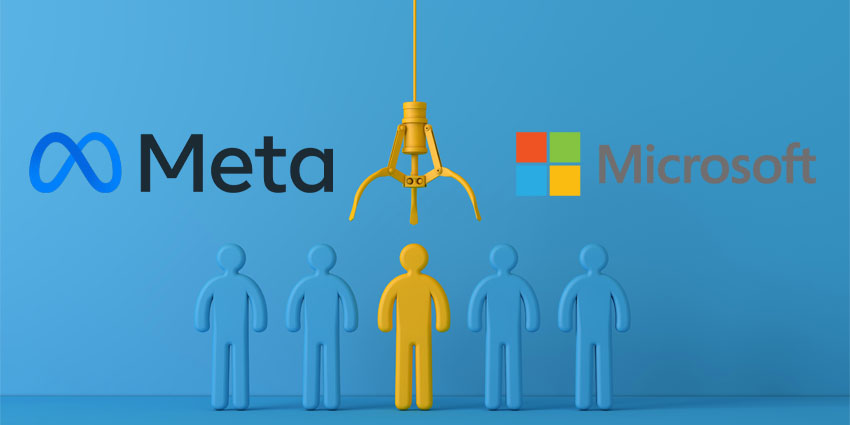It wasn’t so long ago that video calling was reserved for special occasions and infrequent use, even meriting the grand-sounding label ‘video conferencing’.
Today, one legacy of the COVID-related remote revolution is the complete normalising of this mode of meeting one another, to the point that it’s now a baseline expectation of every business remote conversation. Collaboration applications are now core to both office-based and remote business productivity as those returning to central workplaces are taking their webcams and ring lights along with them. Those working in hybrid and fully remote environments will continue to rely on collaboration tools as well. And it’s just as prevalent for video to be used in external and client facing communications, as for internal meetings.
For industries who face the most rigorous compliance and regulatory controls, this presents a quandary—how to enable the critical, interactive collaboration features like screenshares, chats, and webcams in a secure and compliant way? How do you ensure that no aspect of a collaborative, multimedia rich conversation escapes capture, supervision, and review, so that the organisation is not in breach of regulatory frameworks? Despite the fact that the world’s top 40 banks and financial institutions are committed to making remote work a permeant, key pillar of business operations, Rosa Lear Theta Lake’s VP of Marketing, knows that some of them do not yet have the capability to archive, supervise, and truly understand what’s happening during collaboration conversations.
Video compliance from Theta Lake
“We’ve invested significant time considering how review and compliance should be handled and how users will use supporting technology, to develop a UX that customers can use to quickly and automatically monitor content and ensure compliance,” she explained.
“Video supervision is complex. A transcript may record an adviser saying one thing, but they could be holding up a document which is contradictory to that message. The ability to understand each vector of a conversation to determine the context and potential problematic issues can’t be detected using legacy supervisory platforms built for email. People can collude and try to circumvent rules around providing investment advice and appropriate disclaimers. There can even be items, like a poster or flag on the wall behind the speaker that violate acceptable use policies and introduces other risk elements.”
Theta Lake’s AI-enabled Security and Compliance Suite is purpose built to identify risks in every aspect of a collaboration session, where potentially risky activity or misdirection could be happening across any combination of channels, from audio to visual to chat. Theta Lake’s platform interprets how different combinations of visual signals, discussions, and shared content, suggest accidental or deliberate breaches of policy and procedure. For example, the Security and Compliance Suite detects the presence of sensitive personal information like Social Security Numbers, birthdates, and account numbers across what was spoken, shown, or shared during a collaboration session. Theta Lake’s platform also can detect “change of venue” conversations, where employees attempt to transfer communications to unmonitored applications, circumventing firm policies:
“In our latest product release, we can detect an attempted change of venue. If someone says, let’s take this offline, I’ll send you a message on WhatsApp, so they’re completely off the corporate platforms into a different portal, we can detect that. We can flag these potentially problematic interactions to help reviewers address the question of ‘this person took this offline. Why is that?’ Is that something that needs to be investigated or addressed? What were they talking about?” Lear also noted that new capabilities to detect conversations between restricted groups provide firms with transparency into internal groups and accounts which should not ordinarily be collaborating with one another. While this is requirement is specific to regulated industries, it demonstrates the powerful capabilities available in Theta Lake’s platform that can be applied to any industry.
Reassurance in a changing risk landscape
When employees are working remotely, they still represent a brand’s reputation, so it’s vital that oversight of public-facing interactions are supervised, and areas of potential concern like abusive behavior, complaints, or the use of profanity are flagged immediately for review. Businesses must adapt their capabilities to monitor branding and franchise risks to align to these new modes of communication.
“Just as when email came on the scene, people realised the need to supervise it, to monitor and make sure the business was being represented in a certain way.” Lear continued.
Theta Lake’s recently allowed patents demonstrate the technical expertise it has applied to the complexities of identifying risks in dynamic collaboration content as well as innovations in responsive and intuitive platform design that result in more efficient and effective oversight processes. Regulated or not, enterprises must keep up. “Video is here now, and it’s irresponsible to not address it proactively – just as we put monitoring measures in place for email, video is no different. It’s just a different mode of communication that we need to account for,” Lear concluded.
“Any compliance person in regulated industries who still has their head in the sand and is still not reviewing video content for risk, is setting themselves up for a world of hurt later on. We’ve reached a point where choosing to do nothing, is the same as introducing risk, in the eyes of the regulator.”
Learn more at https://thetalake.com/solutions/video-monitoring/







